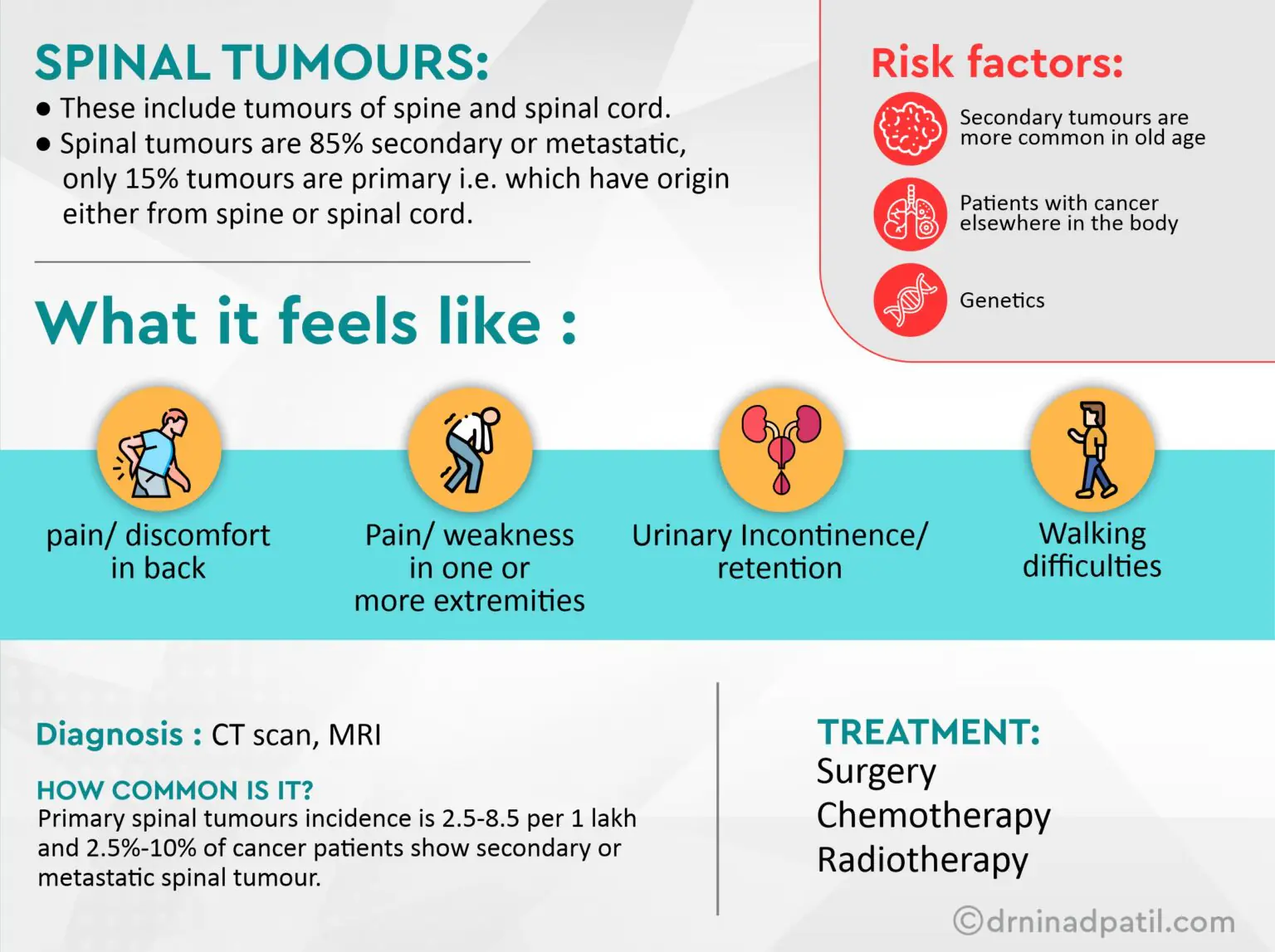
Spinal Tumor Treatment in Pune and PCMC
What is Spinal Tumours?
These include tumors of the spine and spinal cord.
Spinal tumors are 85% secondary or metastatic, and only 15% tumors are primary i.e. which have origin either from the spine or spinal cord.
Risk factors
- Secondary tumors are more common in old age
- Patients with cancer elsewhere in the body
- Genetics
What are the Symptoms of Spinal Tumours?
- Pain or discomfort in the back
- Pain or weakness in one or more extremities
- Urinary Incontinence/Retention
- Walking difficulties
What Causes Spinal Tumours?
Primary spinal tumour incidence is 2.5-8.5 per 1 lakh and 2.5%-10% of cancer patients show secondary or metastatic spinal tumours.
How is Spinal Tumor Treated?
1. Surgery: Surgical options for spinal tumor treatment vary from total to partial removal of the tumor. Spinal tumor surgery requires a certain precision. While tumors close to the spinal cord can often be removed, a surgeon must be careful not to injure the spinal cord or other major nerves of the spine.
There are numerous surgical approaches that a doctor can use when performing spinal tumor surgery.
2. Chemotherapy: Chemotherapy uses powerful drugs to kill or stop the growth of cancer cells. It is often used for malignant spinal tumors, either primary or metastatic. Administered orally or intravenously, chemotherapy aims to shrink tumors, relieve symptoms, and prevent cancer from spreading. Radiotherapy
3. Radiation Therapy: Radiation therapy uses high-energy rays to kill cancer cells and is used for both benign and malignant spinal tumors. External beam radiotherapy targets the tumor from outside the body, while internal beam radiotherapy places radioactive material near the tumor.
Spinal Tumor Diagnosis :
Accurate diagnosis of spinal tumors is important for effective treatment. The primary imaging methods used are CT and MRI.
1. CT Scan: Provides detailed cross-sectional images of the spine.
It is useful for visualizing bone structures and detecting calcifications.
Enhanced with contrast agents to differentiate tissue types and visualize blood vessels.
2. MRI: Provides superior soft tissue contrast resolution.
Essential for the detection and characterization of spinal tumors.
Differentiates benign from malignant lesions.
Expert Spinal Tumor Treatment in Pune: Consult Dr. Ninad Patil, Premier Spine Tumor Surgeon Specialist in Pune
If you are seeking spinal tumor treatment in Pune and PCMC, we highly recommend consulting Dr. Ninad Patil. Renowned for his expertise in spinal tumor surgery, Dr. Patil is considered one of the best spine tumor surgeon specialist in Pune. With a complete approach to diagnosis and treatment, Dr. Patil ensures that each patient receives the highest standard of care.

